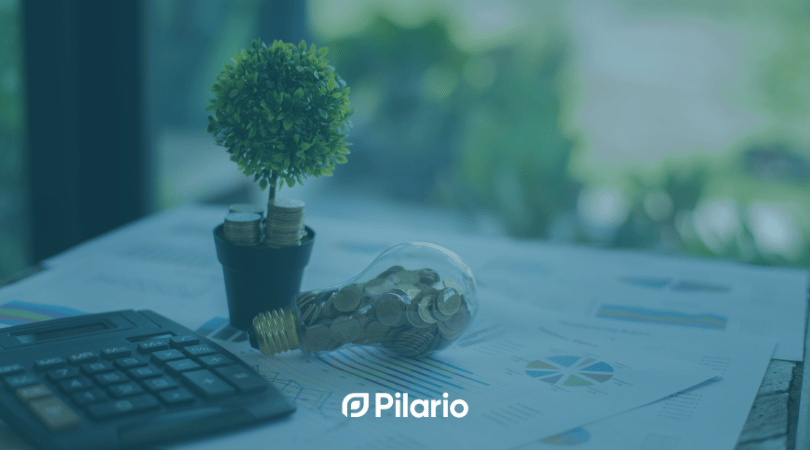09/02/2024
Carbon Accounting Explained: Achieving Sustainability in Business
Discover the essentials of carbon accounting, a key strategy in the fight against climate change.

11 February 2024
When navigating the future of carbon accounting we come across critical hurdles of accurate greenhouse gas emissions tracking and the regulatory landscape around it.
We must also consider digital breakthroughs such as artificial intelligence and blockchain, which have the potential to transform sustainable practices. Let’s dive into how these innovations could transform carbon accounting, making it an essential component of environmental accountability and decision-making for a low-carbon future.
Carbon accounting reveals a complex and challenging journey. Although committing to track and cut down greenhouse gas emissions is key for achieving sustainability, organizations encounter many obstacles. Recognizing these challenges is crucial for creating successful strategies to tackle them.
One of the most significant obstacles is the gathering of accurate data. Organizations often struggle with accessing reliable data, especially for Scope 3 emissions. The variability in data quality and availability can hinder precise emissions calculator and reporting;
Effective carbon accounting demands coordination at all organizational levels as well as with external supply chain partners. Building involvement and commitment from stakeholders can be difficult, especially when the benefits of carbon accounting are not immediately visible.
The regulatory environment surrounding carbon emissions reporting is complex and often fragmented, varying significantly by region and industry. Navigating these regulations and anticipating changes can be daunting for businesses striving to remain compliant, while following carbon accounting frameworks and standards.
The absence of universal carbon accounting standards can sometimes lead to inconsistencies, making it hard for organizations to benchmark their emissions against peers. Adopting standardized metrics is vital for reliable and transparent reporting.
Recognizing these problems involves a multidimensional approach that includes effective data management, ongoing learning and strategic collaboration. Organizations may improve their carbon accounting efforts by addressing these challenges early on, making them more effective instruments for generating true environmental change.
Carbon accounting is on track for a significant shift, fueled by digital innovation and regulatory breakthroughs. Here’s what to expect as we move from manual operations to a more technologically advanced future:
The digital revolution, led by AI and blockchain, promises to bring about a sea change in how emissions data are tracked, analyzed, and reported. These technologies offer the potential for real-time monitoring of emissions, greater transparency in reporting, and enhanced data integrity.
The global move towards stricter regulations will transform carbon accounting from a voluntary practice to a mandatory requirement. This will necessitate a deeper integration of carbon metrics into financial and operational decision-making frameworks, highlighting the financial implications of environmental accountability.
The focus on Scope 3 emissions will catalyze the adoption of standardized reporting languages, breaking down barriers and fostering global collaboration. This standardization is key to benchmarking and sharing success in sustainability efforts.
The refinement of carbon pricing mechanisms will play a pivotal role in internalizing environmental costs, incentivizing reductions in greenhouse gas emissions, and fostering investment in sustainable practices and technologies.
In this rapidly evolving field, technology and regulation guide us toward a more informed, efficient, and sustainable future. The future of carbon accounting is not just about tracking emissions but also about integrating these insights into the very fabric of organizational decision-making, steering us towards a low-carbon world.
In navigating the complexities of carbon accounting, businesses face the dual challenge of accurately tracking emissions and adapting to a rapidly evolving regulatory and technological landscape. The combination of artificial intelligence, blockchain, and standardized reporting standards brings in a new age of accuracy and transparency in environmental responsibility. Meanwhile, stricter regulations and innovative carbon pricing mechanisms underscore the growing importance of sustainability in corporate decision-making.
This journey, filled with challenges, also presents an opportunity for organizations to lead in sustainability by leveraging advanced tools that streamline carbon accounting processes. As we look towards a future where carbon accounting becomes more integrated into business practices. It’s clear that embracing these changes is not just beneficial. It’s essential for companies committed to making a significant impact in the fight against climate change.
The path forward is marked by innovation, collaboration, and a steadfast commitment to sustainability, guiding businesses towards a more accountable and low-carbon future. Explore Pilario and discover how we can help you navigate the present and future of carbon accounting, with our LCA software. Transforming challenges into opportunities for sustainable growth.

09/02/2024
Discover the essentials of carbon accounting, a key strategy in the fight against climate change.

11/02/2024
Understanding the different types of carbon emissions is crucial. Luckily, they’re categorized into three different scopes.

11/02/2024
Organizations need guidelines to measure, report, and reduce their greenhouse gas emissions when implementing carbon accounting.